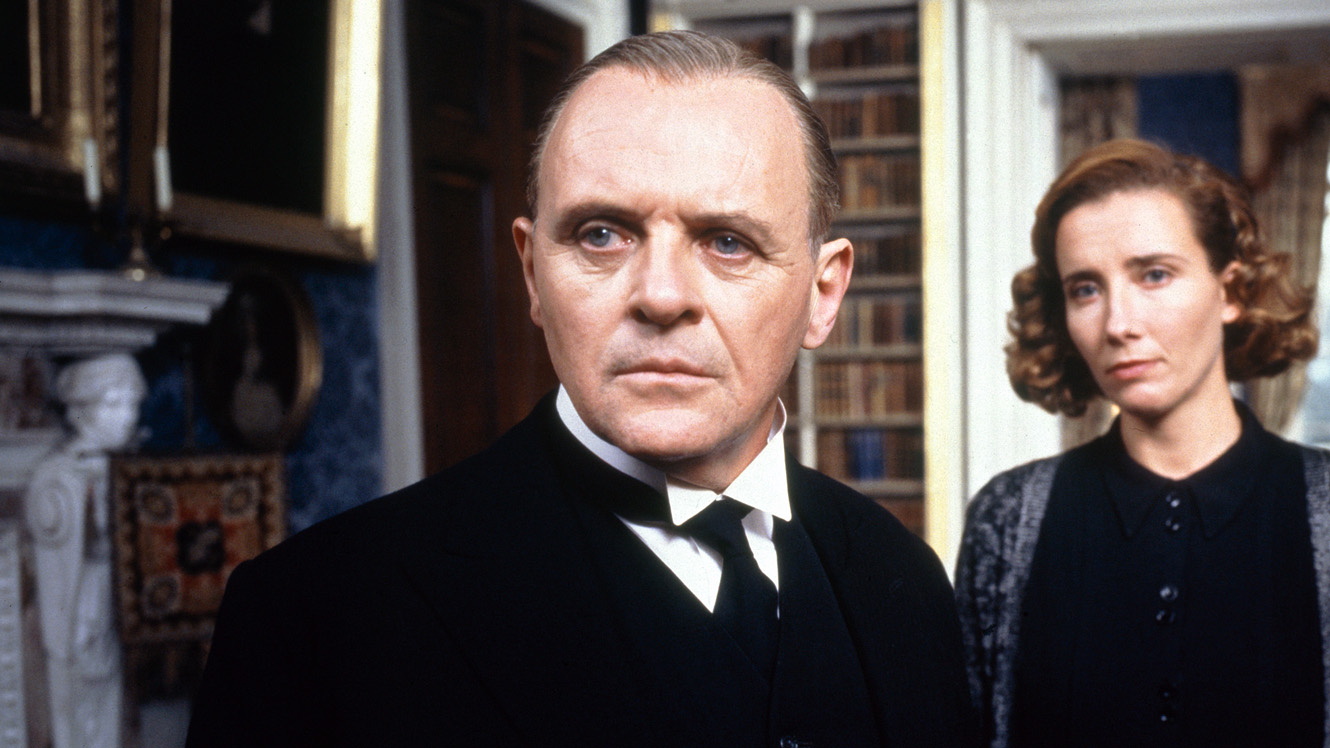
Like a fine wine, some films seem to grow better with each passing year. Though the content never changes, the times and the audience do. When a work of art still feels relevant after many decades and many viewings, it has touched a timeless quality which preserves it from aging. A film with eternal youth infects us with a sense of fresh nostalgia whenever we return to draw from its well.
But as the years slip away, film viewers apply aging eyes to perennial favorites and find that something intangible changes about the experience. The pictures on screen are frozen in time, but our perspectives have evolved with age. The most precious jewels of cinema never fade in glory, but the passage of time may reveal a new brilliance which we could never notice from a youthful viewpoint. These priceless films are ones to cherish and revisit as time goes by.
1. Au Hasard Balthazar (1966) – Robert Bresson
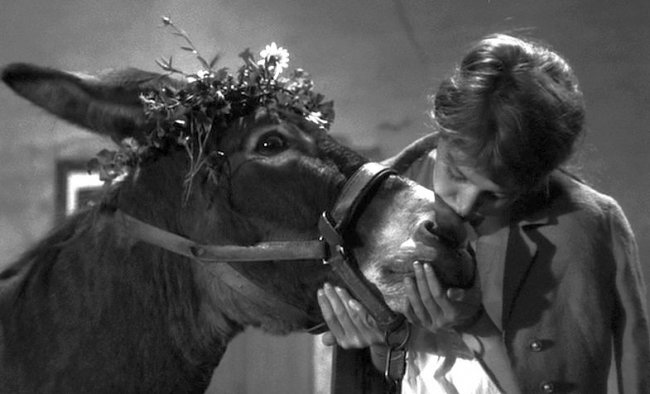
This sublime film is one of the most unusual in cinematic history. Director Robert Bresson chose to cast a donkey as the main character, and to follow its life from youth until death. As the beast named Balthazar is passed from owner to owner he is the subject of many beatings, and his inability to defend himself seems to draw out the worst impulses in the people who dominate his life. It’s a heartbreaking but enlightening saga that rings tragically true, and forces the viewer to weigh the ugliness of human behavior against that of the symbolically saintly Balthazar.
A story like this is bound to gain additional impact in proportion to the number of interactions one has with selfish and cruel people. A film that might appear pessimistic during one’s youth takes on a more realistic tone after many more years of dealing with the world at large. Balthazar becomes a more vivid character whose unjust suffering feels especially poignant. Au Hasard Balthazar is a time capsule of wisdom that grows more potent over the years.
2. Cries and Whispers (1972) – Ingmar Bergman
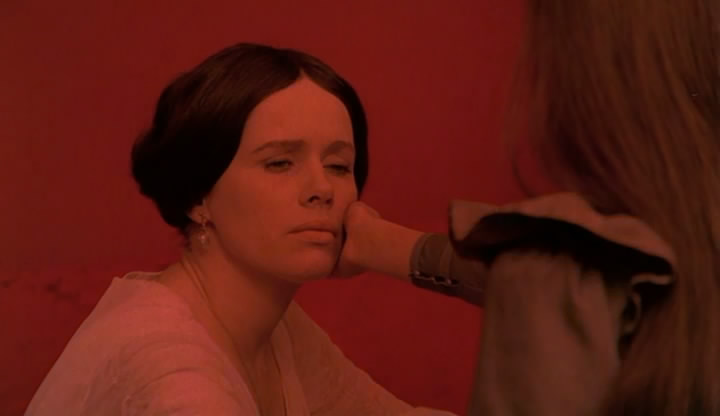
Ingmar Bergman’s Cries and Whispers is an unflinching examination of suffering and of the relationships that grow or crumble in its presence. One of the sisters in this film is dying of cancer, but her family is completely unable to provide her comfort due to their own personal problems.
The toxic relationships between the family members might seem exaggerated were it not for Bergman’s deft directorial hand, which frames it all with brutal yet touching realism. Cries and Whispers is a dark journey into the heart of suffering, and a portrait of the souls that are either corrupted or purified by it.
Suffering can be such a personal experience that we lose sight of how we are being affected by it. Sometimes, only an outside perspective can give us an accurate picture of whether we have been made hard or gentle by pain. A close examination of one’s personal relationships can also be enlightening, since we often catch glimpses of ourselves only through such interactions.
Cries and Whispers gives the viewer a chance to step back from his or her own suffering for a moment and consider what personal evolution has occurred under its shadow. Horrified at the cruelty of the relationships on screen, one may have a moment of lucidity regarding a lifetime of choices made during this human existence which is often defined by suffering.
3. Paths of Glory (1957) – Stanley Kubrick
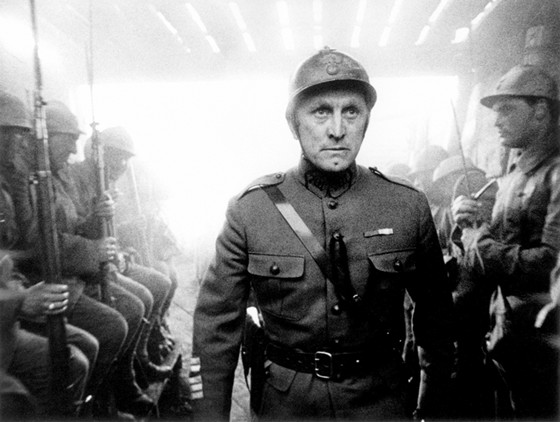
Stanley Kubrick’s brilliant film Paths of Glory is much more than just a World War I movie. It’s simultaneously a taut drama with enormous moral implications. Kirk Douglas plays a French Colonel who is given an impossible suicide mission for no other reason than that it will bring a promotion to the Colonel’s superior. Refusing to lead the men under his command into certain death, he refuses to obey the orders.
The upshot is that three of his soldiers are condemned to a court-martial and an almost guaranteed execution as a result. The Colonel’s ethical decision becomes a heavy weight around his neck, and the repercussions arising in its aftermath are carefully examined.
The many shades of gray which highlight human decisions about morality are put on stark display in Paths of Glory. Even after the first victory of ethics over passion is achieved, the war has often only just begun, for one also has to consider the consequences for other people of even the most idealistic decisions.
If a commander’s refusal to follow orders leads to the certain execution of some of his troops, is the commander still right to place his or her ideals ahead of the wellbeing of those who might be negatively affected by them? Such nuances may pass by without notice during one’s youth, but they can’t be unseen in older age.
4. The Remains of the Day (1993) – James Ivory
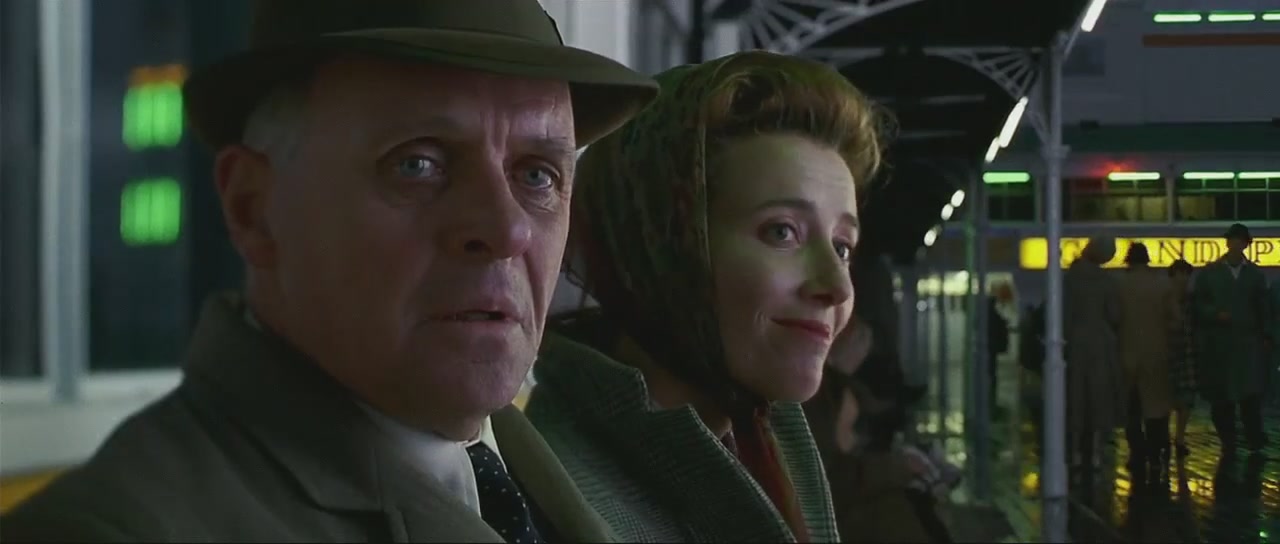
Director James Ivory was at the height of his perfectionist powers when he made the practically flawless film The Remains of the Day. With the assistance of two of the finest performances you’ll ever find in the same film, it has become a classic which eternally deserves greater attention.
Anthony Hopkins plays a dutiful, single-minded English butler who has voluntarily allowed his professional devotion to eclipse his own emotions and desires. When an energetic housekeeper, played by Emma Thompson, joins his staff, the stern butler will have to decide how to handle the feelings growing between the two of them.
What’s especially enlightening about watching this film is the reminder that years of work and effort can culminate in the decision of a single moment. After the moment passes, one may be left with regret or with satisfaction, to the degree that the decision was in tune with one’s inner being.
The message of The Remains of the Day is far from a freewheeling “live in the moment” one, but it certainly serves as a reminder to listen to our hearts before life passes us by. Viewing this movie at later stages of one’s life is sure to prompt some wistful self-examination.
5. The Straight Story (1999) – David Lynch
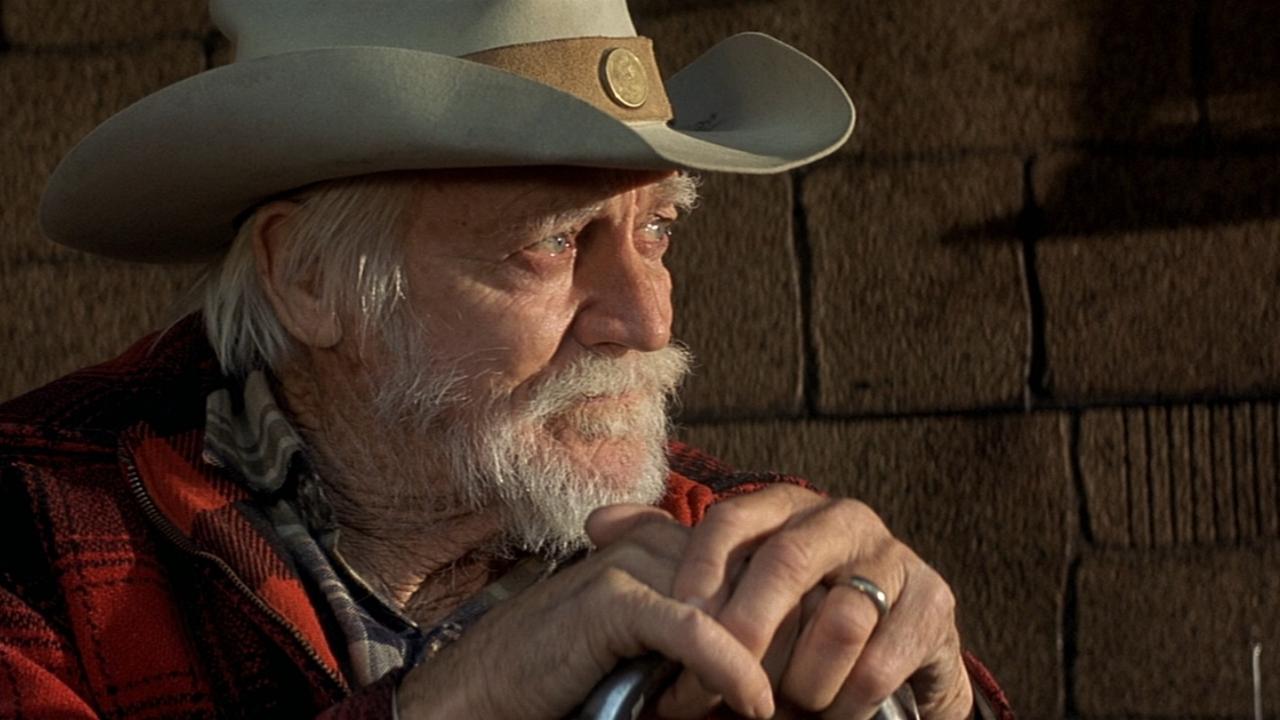
The ever unpredictable director David Lynch took a sharp turn toward normalcy when he tackled The Straight Story, a film based on real events. Richard Farnsworth is unforgettable as Alvin Straight, an elderly man who takes a journey unlike any other. He is traveling to mend a broken relationship with his brother, now that the threat of death is looming over one of them.
But the eccentric and stubborn Straight is determined to make the trip from Iowa to Wisconsin driving an old lawnmower, with no help from any other motorized conveniences. A mission this unique promises a wealth of meaningful experiences, and The Straight Story doesn’t disappoint.
Alvin Straight’s journey across the American Midwest represents what many people imagine doing at some point before they die… just not right now. Through his personal interactions along the way, he also finds his own conscience examined and cleared in the process.
The grim spectre of death can be looked past or trivialized for much of one’s life, but when its proximity starts to fill one’s vision, everything else falls out of focus. A forced reminder of the brevity of life has a way of clarifying what is vital about one’s existence, and The Straight Story is a touching and authentic film sure to ring truer with each passing year.